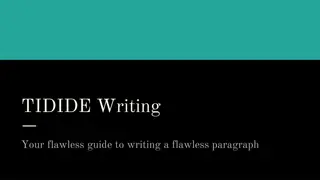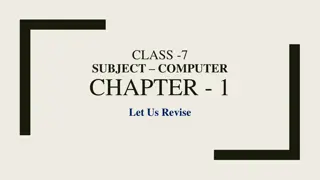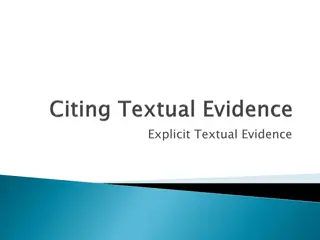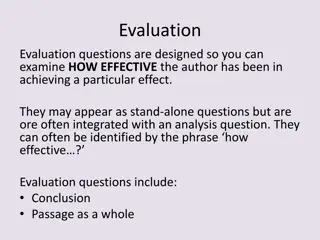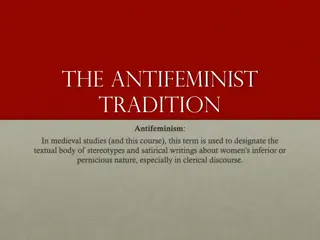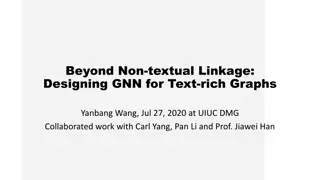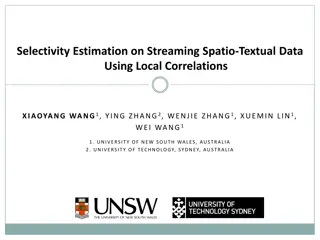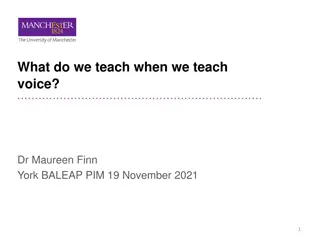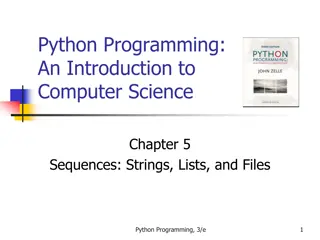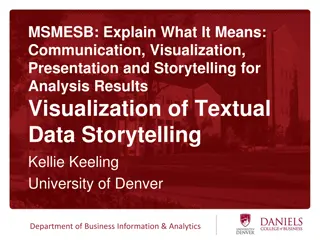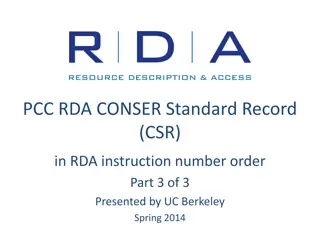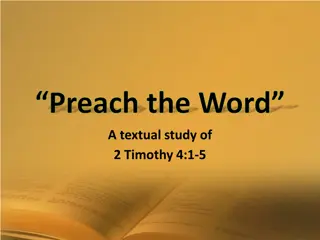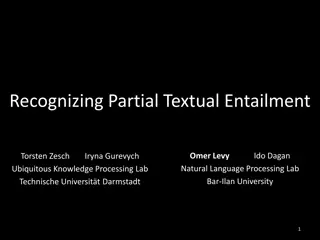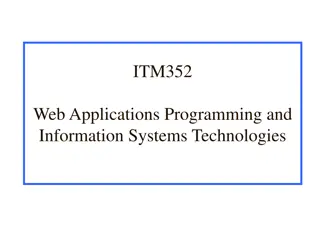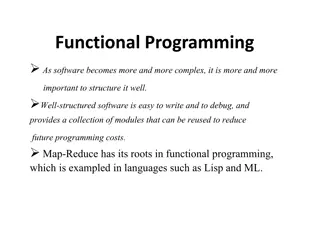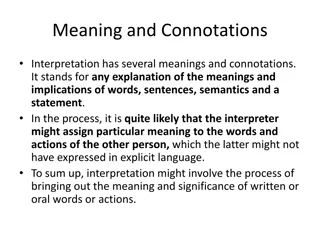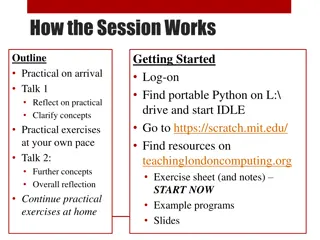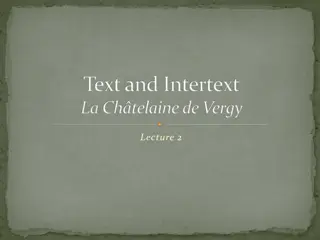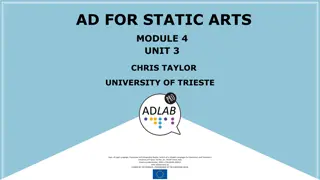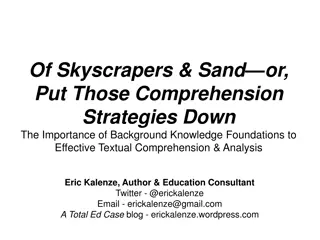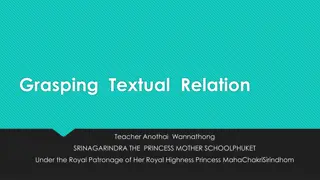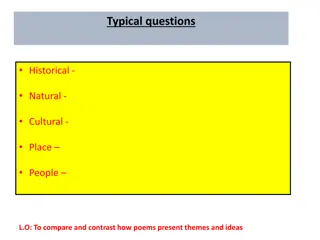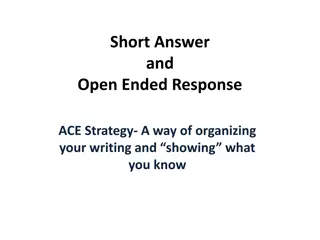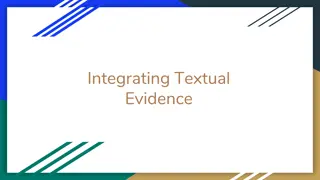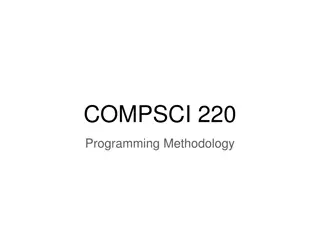Functional Programming
Functional programming, a paradigm that emphasizes declarative programming, pure functions, and limited side effects. Explore the benefits and characteristics of functional programming languages.
0 views • 20 slides
Programming in C: Overview and Constants Explanation
Programming in C is a fundamental introductory guide to the C programming language. It covers the basics of C, including its development history, character set, constants, and rules for constructing constants like integer and real constants. Dr. M. A. JAMAL MOHAMED YASEEN ZUBEIR, an Assistant Profes
3 views • 33 slides
Decision Analysis and Operations Research in Management
This content delves into Management Decision Analysis and Operations Research techniques such as Linear Programming, Integer Linear Programming, Dynamic Programming, Nonlinear Programming, and Network Programming. It covers the phases of an Operations Research study, mathematical modeling for decisi
0 views • 36 slides
Mastering Topic Sentences and Textual Evidence in Academic Writing
Learn how to craft effective topic sentences for your paragraphs, serving as mini-theses and providing a clear roadmap for your writing. Understand the importance of inference and textual evidence to support your ideas with relevant quotes and facts. Enhance your academic writing skills by mastering
0 views • 20 slides
Module 2: PSEA and Safe Programming Training of Trainers (ToT) by CRS HRD
This Module 2 focuses on PSEA and Safe Programming, covering key sessions on understanding safe programming, identifying protection and SEA risks, and mitigating risks. It emphasizes the importance of safe programming in increasing safety, dignity, and access, with staff playing a crucial role. Part
2 views • 19 slides
Understanding Computer Programming: Basics and Beyond
In this chapter, we delve into the fundamental concepts of computer programming. We explore the definition of a program, the role of programming languages, types of programming languages, and generations of programming languages. Additionally, an assignment is provided to reinforce the key learnings
0 views • 25 slides
Mastering Explicit Textual Evidence in Reading Comprehension
Enhancing reading comprehension by utilizing explicit textual evidence to support ideas and opinions about the text. Learn how to clearly state ideas, specify text references, and comment on evidence to bolster your interpretations effectively.
0 views • 15 slides
Understanding Object-Oriented Programming (OOP) in Python
Python is a versatile programming language that supports various programming approaches. Object-Oriented Programming (OOP) is a popular method in Python where objects are created to solve programming problems. OOP in Python focuses on creating reusable code, following the principle of DRY (Don't Rep
2 views • 35 slides
Introduction to Computers and C++ Programming Lecture 1 - Overview and Basics
This lecture covers the fundamental concepts in computer systems and programming using C++. Topics include the main components of a computer, bytes and addresses in memory, computer systems hardware and software, understanding programs, programming languages, compilers, preparing and running C++ pro
1 views • 21 slides
Analysis of Evaluation and Conclusion Questions in Textual Analysis
Evaluation and Conclusion questions play a crucial role in assessing the effectiveness of an author in achieving specific effects and summarizing key points in a passage. These types of questions are commonly found in textual analysis tasks to evaluate the success of conveying ideas and themes. Eval
0 views • 9 slides
Web Application Development and Programming CTE Program Overview
Viera High School offers a comprehensive CTE program in Web Application Development and Programming, taught by Mr. Dohmen. Students learn popular programming languages like Python, SQL, JavaScript, Java, C#, and C. The courses cover web programming, JavaScripting, and PHP programming, providing cert
2 views • 7 slides
Introduction to Programming with RobotC in Robotics Education
Programming in robotics involves giving specific directions to a robot using software like RobotC. This introduction covers the basics of programming, software organization, and how to get started with RobotC through creating flow charts and programming tasks. Learn about setting up RobotC, creating
0 views • 8 slides
Introduction to Programming and Computer Instructions
Programming is the process of creating instructions for computers to follow and accomplish tasks. It involves turning human language instructions into detailed binary machine language. Before learning programming, individuals may have different levels of experience, ranging from no experience to pro
0 views • 16 slides
Unveiling the Antifeminist Tradition: Ideological Roots, Textual Sources, and Female Nature
Explore the antifeminist tradition in medieval studies through a deep dive into its ideological roots, main textual sources, and portrayal of female nature. Discover how stereotypes and satirical writings about women's perceived inferiority have persisted throughout history, informed by clerical, in
0 views • 9 slides
Enhancing Graph Neural Networks for Text-rich Graphs
Designing GNNs for text-rich graphs involves considering both textual and non-textual linkage information among entities, such as papers, webpages, and people. Utilizing structural information beyond citation networks and exploring latent textual linkages are key challenges. Previous work has focuse
0 views • 33 slides
Development of Attosecond Theory for Nobel Prize through Verilog Programming
Attosecond generation is a crucial technique for creating attosecond pulses by manipulating radiation waves. This research paper focuses on developing the Attosecond generation equation through Verilog programming and validating it using test programming techniques. The interface between equations,
1 views • 15 slides
Selectivity Estimation on Streaming Spatio-Textual Data Using Local Correlations
This research focuses on efficient selectivity estimation on streaming spatio-textual data by incorporating local correlations. It addresses the challenge of estimating the number of objects in a query region with specific keywords in real-time. The study proposes novel approaches like ASP-tree and
0 views • 29 slides
Understanding Voice in Academic Writing: A Comprehensive Overview
Delve into the nuanced concept of voice in academic writing through a discussion of its definitions, classroom implications, evaluation aspects impacted by identities, and the importance of writer ownership. Explore the complex interplay of textual and non-textual elements shaping writer identity. C
0 views • 27 slides
Introduction to Python Programming: Strings, Lists, and Files
This chapter delves into the fundamental concepts of Python programming related to sequences, specifically focusing on strings, lists, and file processing. It covers the representation of strings, various operations that can be performed on them, basic ideas of sequences and indexing for strings and
0 views • 109 slides
Effective Communication and Visualization Techniques for Analyzing Textual Data
Enhance your data analysis skills with effective communication, visualization, presentation, and storytelling techniques. Discover how to analyze textual data through word/phrase frequencies, collocations, and clustering. Explore tools for text processing and natural language processing, such as Exc
0 views • 21 slides
Cataloging Rules and Processes for Textual Resources in RDA
Learning objectives and training provided by UC Berkeley in Spring 2014 on applying the CONSER Standard Record and RDA instructions to describe textual serials and integrating resources in various formats. The acronym review covers core elements and differences between AACR2 rules/AACR2 version of C
0 views • 44 slides
CS252 Systems Programming Course Overview
This course overview covers topics such as C programming review, Unix basics, Unix systems programming, and grading details. The course includes labs on C/C++ programming, Unix shell scripting, and writing your own shell. Communication is emphasized through Piazza for questions/answers and Blackboar
0 views • 41 slides
A Textual Study of 2 Timothy 4:1-5
In this textual study of 2 Timothy 4:1-5, the solemn charge of preaching the Word is emphasized, emphasizing the importance of proclaiming religious truths and principles to prepare for Jesus' return and eternity. The passage highlights the gravity and seriousness of preaching, urging preachers to f
1 views • 31 slides
Understanding Textual Entailment in Natural Language Processing
This collection of images showcases various aspects of textual entailment, where one text can entail another. It explores the relationship between statements like "muscles move bones" and "muscles generate movement". Different levels of entailment are depicted, culminating in complete textual entail
0 views • 72 slides
Introduction to Programming Languages and Functional Programming with OCaml
Welcome to Lecture 1 of CSEP505 on Programming Languages focusing on OCaml and functional programming. Professor Dan Grossman introduces the course, discusses the importance of studying programming languages, and shares insights on course mechanics and content. Topics include staff introductions, co
0 views • 84 slides
Understanding ITM352 and Its Role in MIS
Welcome to ITM352, a course focusing on acquiring basic programming skills in a business context. This course emphasizes hands-on experience in developing relevant software applications, addressing real technology problems, and fostering rapid self-learning of IS/IT technologies. Misconceptions arou
0 views • 36 slides
Understanding Functional Programming Paradigm
Functional programming emphasizes well-structured software that is easy to write and debug, with reusable modules to reduce future programming costs. It introduces higher-order functions and first-class function values, fostering declarative programming for tasks like symbolic data manipulation and
0 views • 21 slides
Essential Principles of Teaching Programming Languages
Foundational concepts in programming form the core of computing. This encompasses understanding programming fundamentals, teaching language aspects effectively, statistical programming for data analysis, and guiding students unfamiliar with programming environments towards grasping the logic and sim
0 views • 23 slides
Unveiling the Art of Interpretation: From Textual Meanings to Contextual Significance
Interpretation delves into the meanings and implications of words, sentences, and classical texts, bringing out their significance. It involves decoding complex ideas, separating temporal and perennial thoughts, and revealing contemporary relevance. Different approaches like textual and contextual a
0 views • 18 slides
Exploring Computer Programming Principles
Dive into the world of computer programming, covering high-level and machine languages, compilers, interpreters, writing programs, top-down design, and the array of programming languages available. Understand the essentials of building code to control computers, the diversity of programming language
0 views • 23 slides
Transitioning from Scratch to Python: A Practical Approach for Learning Textual Programming
Explore the transition from visual programming in Scratch to textual programming in Python using Turtle Graphics. Engage in practical exercises, clarify key concepts, and reflect on the challenges and progress in learning core programming concepts. Utilize resources from TeachingLondon Computing to
0 views • 21 slides
Exploring Intertextuality in Medieval Manuscripts
Delve into the concept of intertextuality in medieval manuscripts, focusing on the Châtelaine de Vergy. Discover how manuscript culture and mouvance shape textual mobility and authorship perceptions. Uncover key points on manuscript variations and the dynamic nature of medieval works. Critically ex
0 views • 16 slides
Linguistic and Textual Features of Ad in Static Arts
Explore the linguistic and textual features of advertising in static arts, focusing on the use of present tense, short declarative sentences, and vivid vocabulary. Understand how cohesion, repetition, and non-finite verbs contribute to the impact of museum advertisements compared to general ads.
0 views • 23 slides
Importance of Background Knowledge for Effective Textual Comprehension
Understanding the significance of background knowledge in enhancing textual comprehension is crucial for education. The article emphasizes the misinterpretation of Bloom's Taxonomy and the need to recognize reading as more than just a skill. It highlights the importance of foundational knowledge in
0 views • 25 slides
Understanding Textual Relations in Language Teaching
Explore different types of textual relations such as lexical cohesion, grammatical cohesion, and more in language teaching. Learn how sentences are related through vocabulary, synonyms, general terms, and pronouns to enhance understanding and coherence in writing. Examples from the Grasping Textual
0 views • 23 slides
Exploring Poetry Analysis and Comparison Techniques
Dive into the realm of poetry analysis by comparing and contrasting how different poems present themes and ideas. Discover strategies for examining language, form, and structure used by poets to convey meanings and effects. Enhance your understanding of textual contexts and learn how to craft inform
0 views • 23 slides
Effective Writing with the ACE Strategy
Unlock the power of the ACE strategy to enhance your writing by answering questions with restated prompts, citing textual evidence, and providing detailed explanations. Understand the importance of textual evidence and learn how to structure your responses effectively to convey your understanding co
0 views • 16 slides
CS 288-102 Intensive Programming in Linux Spring 2017 Course Details
Learn Linux programming, C language proficiency, Bash scripting, and more in this intensive course taught by Instructor C.F. Yurkoski. The course covers programming in Linux environment, command line interface, C language, client/server programming, and essential programming concepts like pointers,
0 views • 31 slides
Mastering the Art of Integrating Textual Evidence
When incorporating textual evidence into your writing, it is crucial to use quotes strategically, ensuring they enhance your argument. By leading readers into and out of quotes seamlessly, and blending them into your sentences creatively, you can maintain the integrity and impact of the original tex
0 views • 8 slides
Functional Programming Concepts for COMPSCI 220 Programming Methodology
In this tutorial, we explore functional programming concepts in the context of COMPSCI 220 Programming Methodology. We delve into writing functions using `reduce` and discuss examples and implementations of various functions like sum, product, and string length calculation. We also analyze the diffe
1 views • 47 slides



